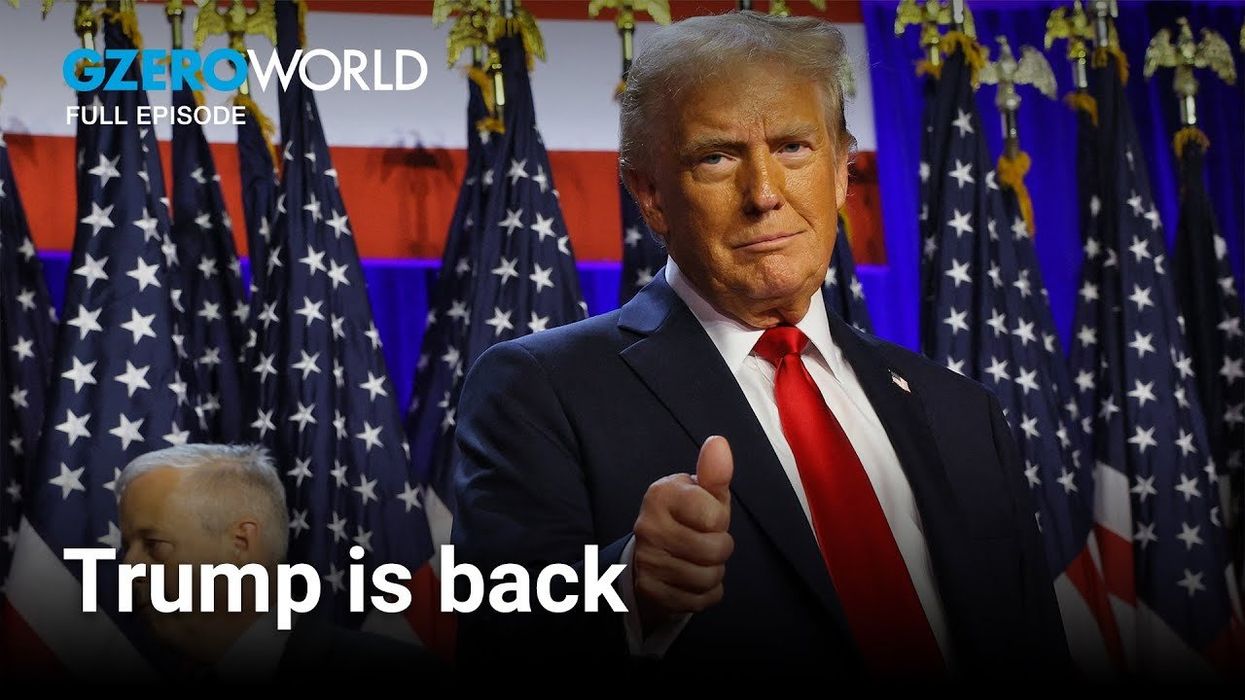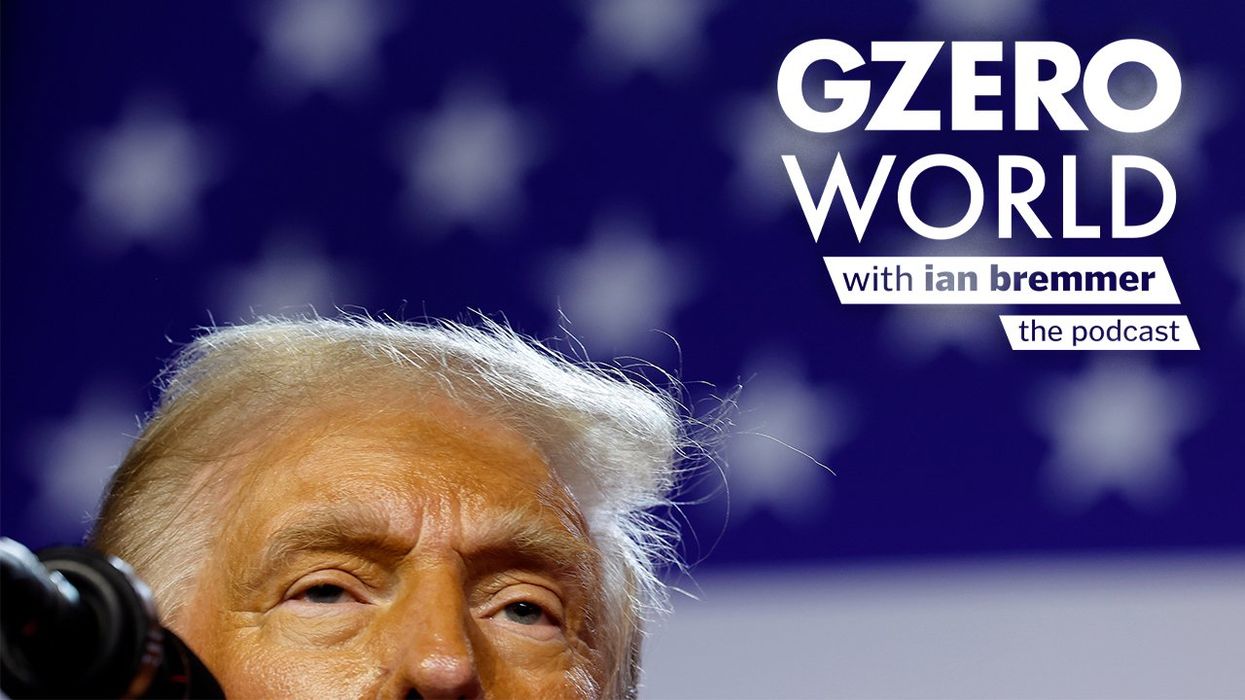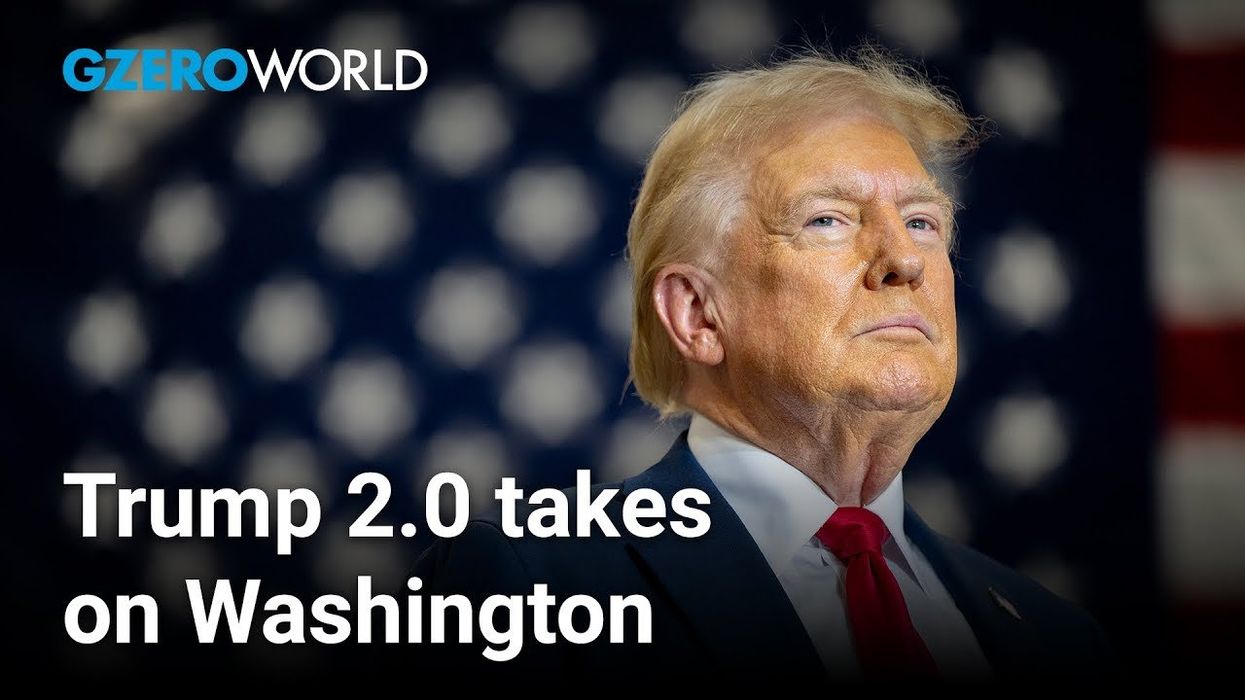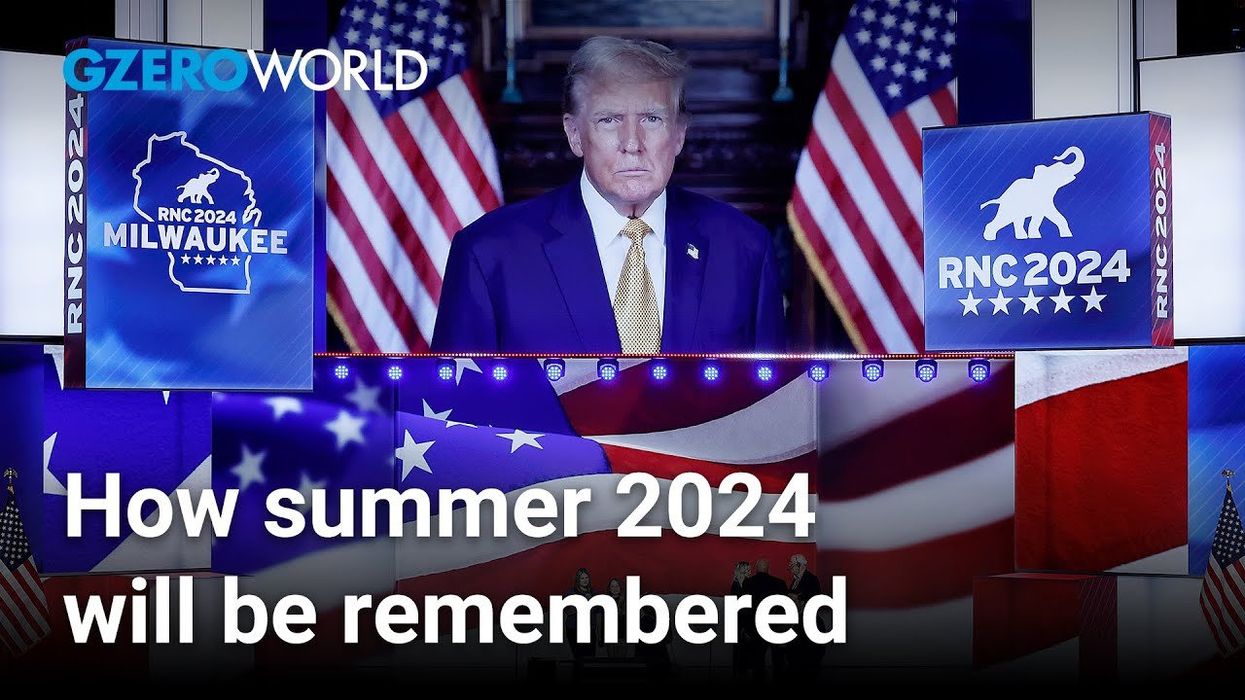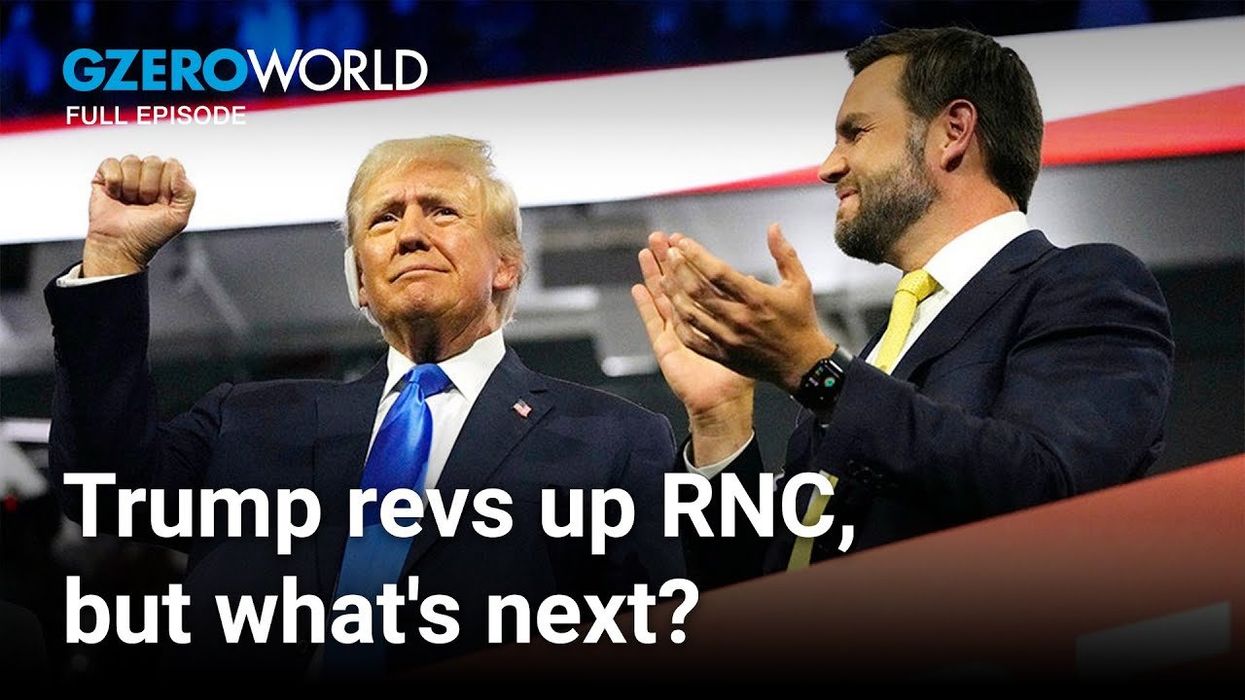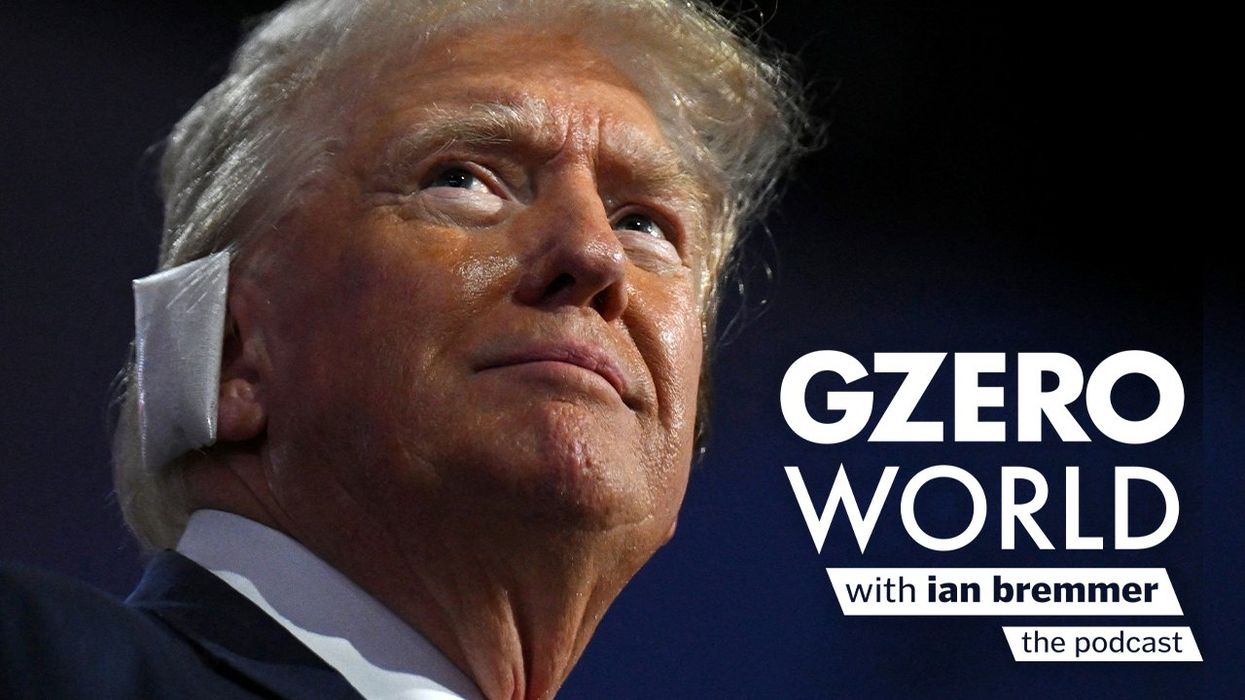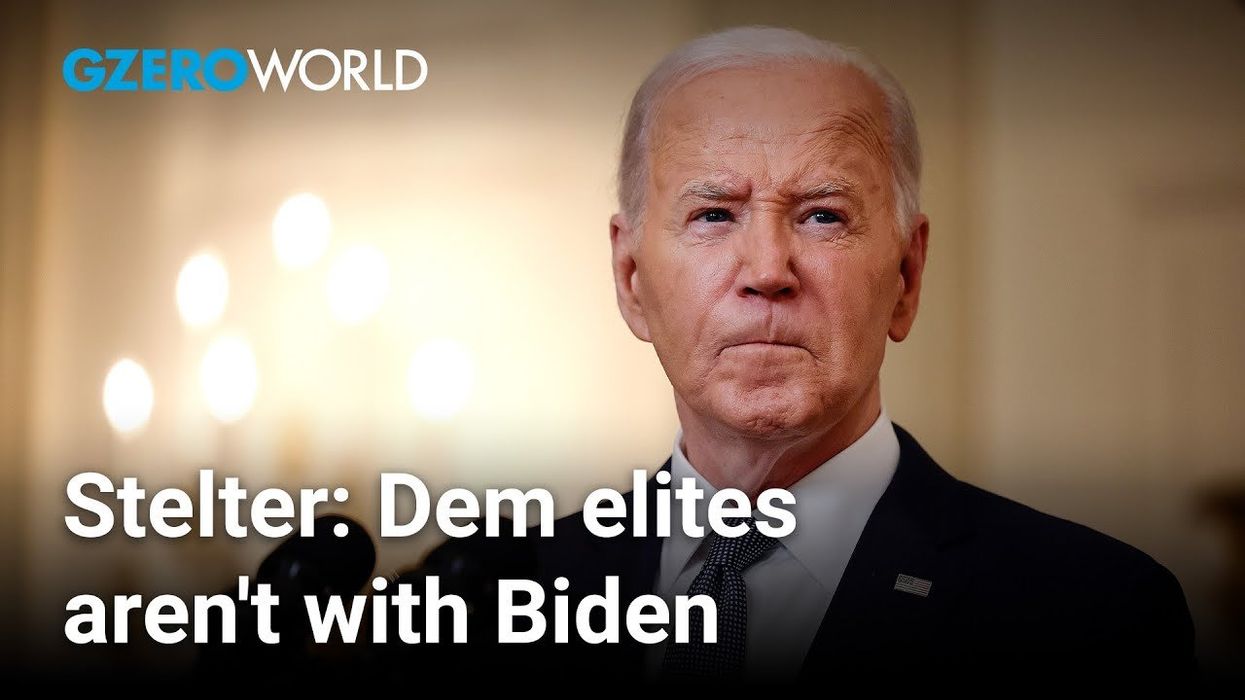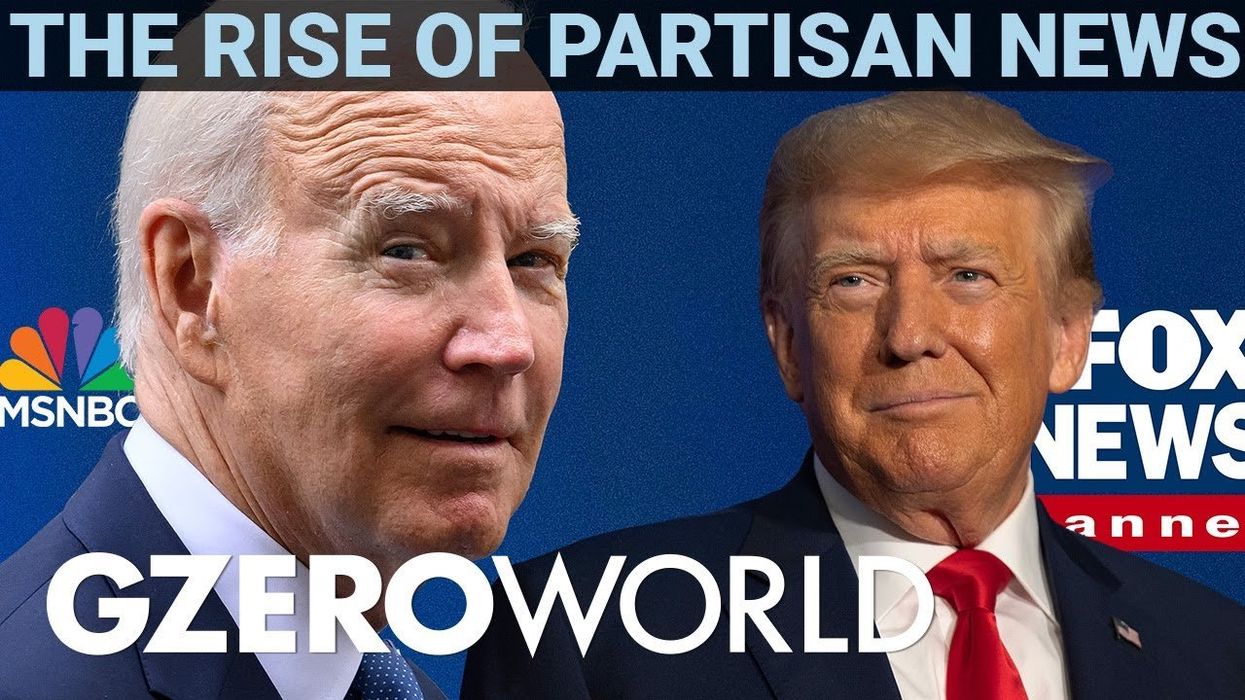GZERO World with Ian Bremmer
Trump's America: How MAGA came out on top
Donald Trump’s historic return to office signals a powerful shift in American politics, raising questions about the future of democracy as both major parties grapple with deep divides and an increasingly anti-establishment electorate. Along with Vanderbilt historian Nicole Hemmer and Wall Street Journal correspondent Molly Ball, Ian Bremmer unpacks the wide range of implications of Trump’s decisive election win.
Nov 10, 2024
